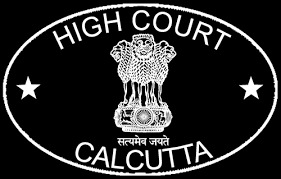Rajes Kumar, J.@mdashThis is a revision filed by the applicant-assessee u/s 11 of the U.P. Sales Tax Act, 1948 (hereinafter referred to as "the Act") against the order of the Tribunal dated February 4, 1991 relating to assessment year 1979-80.
2. The brief facts of the case are that the applicant had purchased bricks and sold them after converting into small pieces in the form of gitti. Before the assessing authority, the applicant claimed that the bricks were purchased after paying tax, therefore, the gitti made out of such bricks, was not liable to tax. Assessing authority levied tax on the gitti on the ground that the conversion of bricks into gitti was manufacturing process and the applicant being a manufacturer, was liable to tax on the gitti. First appeal filed by the applicant was rejected. Applicant filed second appeal before the Tribunal which was also rejected.
3. I have heard Sri P. Agarwal, learned counsel for the applicant and learned Standing Counsel.
4. The short question is whether the conversion of bricks into a small pieces which is commonly called as gitti amounts to manufacturing and the applicant being a manufacturer, is liable to tax on the sale of such gitti though the tax has been paid on bricks. In the case of Divisional Deputy Commissioner of Sales Tax v. Bherhaghat Mineral Industries reported in [2000] 120 STC 205, honourable Supreme Court held that crushing dolomite lumps into chips and powder, is not a process of manufacture that do not brings about a new commercial commodity.
5. In the case of Commissioner of Sales Tax, U.P. v. Lal Kunwa Stone Crusher (P) Ltd. reported in [2000] 118 STC 287 honourable Supreme Court has held that crushing of stone boulders into stone chips and dust for the purpose of further sale may remain commercially the same goods and could not be taxed again. Honourable Supreme Court has considered the definition of Section 2(e-1) of the U.P. Sales Tax Act. Honourable Supreme Court held as follows:
"The purpose of sales tax is to levy tax on sale of goods of each variety and not the sale of the substance out of which they may have been made. As soon as separate commercial commodities emerge or come into existence, they become separately taxable goods for purposes of sales tax. Where commercial goods, without change of their identity as such goods, are merely subjected to some processing or finishing, they may remain commercially the same goods which cannot be taxed again, in a series of sales, so long as they retain their identity as goods of a particular type. We are fortified in this view by the decision in
........In the present case, however, stone, as such, and gitti and articles of stones are all of similar nature though by size they may be different. Even if gitti, kankar, stone-ballast, etc., may all be looked upon as separate in commercial character from stone boulders offered for sale in the market, yet it cannot be presumed that entry 40 of the notification is intended to describe the same as not stone at all. In fact the term ''stone'' is wide enough to include the various forms such as gitti, kankar, stone-ballast. In that view of the matter, we think that the view taken by the majority of the Tribunal and affirmed by the High Court stands to reason. We are, therefore, not inclined to interfere with the same."
6. In the case of
"The contention of the assessee that converting boulders into ''gitti'' does not involve any manufacturing process within the meaning of the Act, was accepted by the Tribunal. From that order the aforementioned question was referred to the High Court at Bombay. Following the Judgments of this Court in Deputy Commissioner of Sales Tax v. Pio Food Packers [1980] 46 STC 63 Chowgule & Co. Pvt. Ltd. v. Union of India [1981] 47 STC 124 and Sterling Foods v. State of Karnataka [1986] 63 STC 239 the High Court held that the conversion of boulders into ''gitti'' did not amount to ''manufacture''. It is this view of the High Court that is assailed in this appeal by the Revenue.
4. Section 2(17) of the Act defines the term ''manufacture'' and it reads thus :
'' "Manufacture" with all its grammatical variations and cognate expressions means producing, making, extracting, alternating, ornamenting, finishing or otherwise processing, treating or adapting any goods ; but does not include such manufactures or manufacturing processes as may be prescribed.''
5. From a perusal of the definition, extracted above, it is clear that the processes of producing, making, extracting, alternating, ornamenting, finishing or otherwise processing, treating or adapting of any goods fall within the meaning of the term ''manufacture''. But it may be pointed out that every type of variation of the goods or finishing of goods would not amount to manufacture unless it results in emergence of new commercial commodity. In the instant case, the very nature of the activity does not result in manufacture because no new commercial commodity comes into existence."
7. Brick is a baked clay in a particular shape. Gitti of bricks is a small piece of bricks thus, both bricks and ballast (gitti) are one and same product. Following the ratio laid down in the aforesaid Judgment of the apex Court, it is held that gitti made out of bricks purchased after paying tax, is not liable to tax again.
8. In the result, the revision is allowed. The order of Tribunal dated February 4, 1991 is set aside. The Tribunal is directed to pass an appropriate order u/s 11(8) of the Act.

